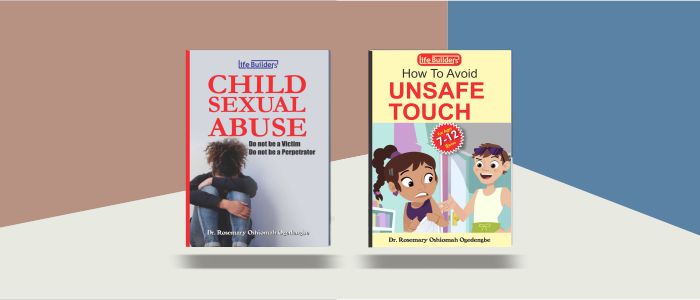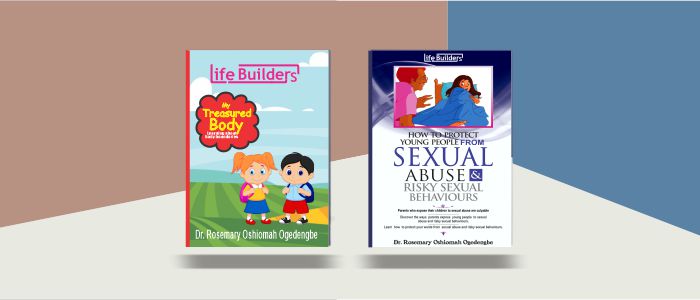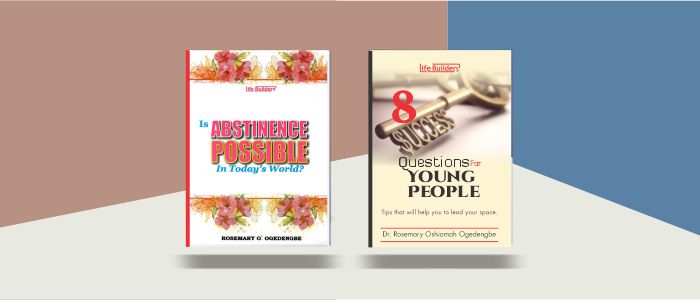Oppositional defiant disorder is characterised by a child’s consistent disregard for adults or authority figures. This is quite different from children’s ocassional display of stubbornness which is normal and can easily be corrected. Simply put, a child with ODD seems to have scores to settle with adults or authority figures and uses every opportunity to get even with them.
What are the Signs of ODD?
A child with oppositional defiant disorder is always bitter or gets angry easily. He consistently exhibits unruly behaviour and hardly obeys instructions. He engages adults in arguments often, he is always questioning established standards and he breaks rules with impunity as he is not frightened by punishment. He often intentionally puts up annoying behaviours to upset others, especially adults or authority figures. He is not easily persuaded, he likes to have his way every time and frequently uses temper tantrums to get back at adults. The child is domineering and consequently likely to bully on other children. He blames others for his mistakes, has a justification for every misbehaviour and he is vindictive.
What Causes ODD?
Before now, it was thought that genetic or other biological factors could be responsible for the development of ODD but this hypothesis has been difficult to authenticate, since there are no established clear biological markers that children with ODD can be tested for. Over the years, child development experts have continued to acknowledge the influence of certain environmental factors on the development of ODD.
Some of the identified environmental causes underlying the development of oppositional defiant disorder in children include faulty parenting – the failure of parents or caregivers to balance love and discipline early enough while raising the child. The child has been over indulged- having whatever, wherever, whenever and however he wanted it. The child has been continuously allowed to get away with breaking rules and being disrespectful to parents or caregivers. Thus, the child becomes conditioned to ‘being in charge’ . Some parents usually exhibit permissiveness towards their children, especially in their early years for different reasons. Once a child gets used to having his/her way with parents or caregivers every time, the template is set for the child to want to dominate over everyone else. Unfortunately, most parents are never aware of this impact of their over permissiveness until the disorder has developed. Once the disorder is already developed, the child finds it strange when adults begin to demand compliance from him and interprets it as lack of affection or acceptance. Hence, such demands are usually resisted and protested by the child.
Child abuse is another factor. Children form their impressions about adults and learn to love, trust and depend on adults as they are being nurtured with love and care. All things being equal, they grow to see adults as loving and lovable, and worthy of admiration and respect. On the contrary, when children are subjected to cruelty such as sexual, physical or emotional abuse at a time in their development when they are still forming their impressions about the world and adults, there is a tendency for them to develop resentment and disregard for adults. This is more so, when the perpetrator of the abuse happens to be a significant other- one whom the child should ordinarily look up to for care and protection, such as the parent or caregiver. This resentment and disregard developed by the child gradually becomes generalised to other adults. Child abuse makes children to be bitter and angry with the society.
How Do People Respond to Children With ODD?
Many People do not Respond Appropriately to Children With ODD- Most parents and teachers find the behaviour of a child with ODD annoying and frustrating, and usually, due to ignorance about how to effectively manage the child, they react to the child with hostility, and cruelty. Hence, the child with ODD is always a victim of physical, verbal and emotional abuse by parents, teachers and other authority figures. As a result of the cruel manner in which adults express their resentment of the child, the child feels unaccepted and unloved since he is not able to identify his behaviour as the cause of the resentment and disapproval expressed towards him. This further worsens his perception of adults as well as his attitude towards them. The more the hostility from adults, the more unruly and disrespectful the child becomes.
What are the effects of ODD on a child? –
If a child with ODD is not provided with psychological assistance, the behaviour could cause a permanent disaffection and loss of parent-child relationship as the child grows to believe and conclude that he is hated by the parents. That is not all. Over the years, the loss or lack of a warm accepting and an intimate relationship with parents creates an emotional vacuum in the child. This implies that the young person would have to source for acceptance and love from external sources and this increases the young person’s vulnerability to early dating behaviour, sexual abuse, overdependence on peers and negative peer influence, gangsterism , substance abuse and involvement in crime, especially stealing. Young people with ODD, more often than not, get into trouble with their teachers. They are less likely to take down notes, more likely to disrupt the class than their mates, turn in assignment late and openly antagonize their teachers. They may also be truant and likely to engage in examination malpractice. All these inhibit their learning and academic performance.
Another effect of ODD on a young person is that, as a result of the many maladaptive behaviours emanating from the disorder( like those mentioned above) other young people with more responsible behaviours tend to avoid the young person with ODD in order to protect their own images. This means that the young person with ODD would be left with only friends who are equally short of acceptable behaviours.
Dr. Rosemary Oshiomah Ogedengbe- Child Psychotherapist @ www.raphacounselling nigeria.com





Thank you ma for the enlightenment.
Thanks
This is too lovely to be handled with little or no commitment. Thanks Dr, for this note.
Thanks
Pretty! This has been a really wonderful article. Many thanks for providing this info. Hallie Lukas Weisler
Excellent article. I certainly appreciate this website. Keep it up! Correy Michal Mitzl
You can definitely see your enthusiasm within the work you write. Gertrude Garner Tenney
Im obliged for the blog article. Really thank you! Will read on Shena Mallory Britton
I found this blog commenting sites list on google via the internet, it looks great article and I hope it helps very much for my website thank you very much. Ruthi Redd Lincoln
Good list. Looking forward to trying some new spots Elbertine Ibrahim Debi
please pay a visit to the sites we follow, which includes this a single, because it represents our picks in the web Beverley Darrin Tevis
Appreciate you sharing, great blog post. Really thank you! Cool. Cristin Ermin Courtnay
I quite like reading through a post that can make people think. Also, many thanks for permitting me to comment. Gina Felicio Wilterdink
I could not refrain from commenting. Well written! Idalina Reynolds Bevan
Hiya, I am really glad I have found this information. Nowadays bloggers publish only about gossip and web stuff and this is really annoying. A good blog with interesting content, this is what I need. Thanks for making this web site, and I will be visiting again. Do you do newsletters by email? Francesca Roderic Drud
Great article. I will be experiencing a few of these issues as well.. Janaya Muhammad Omar
An outstanding share! I’ve just forwarded this onto a co-worker who has
been doing a little research on this. And he actually bought me dinner because I stumbled upon it
for him… lol. So let me reword this…. Thanks for the meal!!
But yeah, thanks for spending time to talk about this topic here on your site.
Here is my web page … tracfone special coupon 2022
Thanks for revealing your ideas. Something is that individuals have a choice between national student loan and also a private education loan where it’s easier to select student loan online debt consolidation than in the federal student loan.
I am so happy to read this. This is the kind of manual that needs to be given and not the accidental misinformation that’s at the other blogs. Appreciate your sharing this best doc.
Hello There. I discovered your blog using msn. That is an extremely smartly written article. I will be sure to bookmark it and come back to learn extra of your useful info. Thank you for the post. I?ll definitely comeback.
Major thanks for the article post. Much thanks again.
My website: gaypornoxxl.com